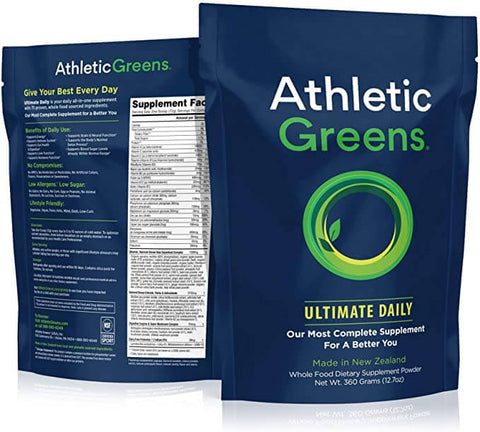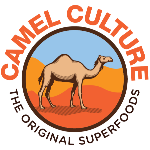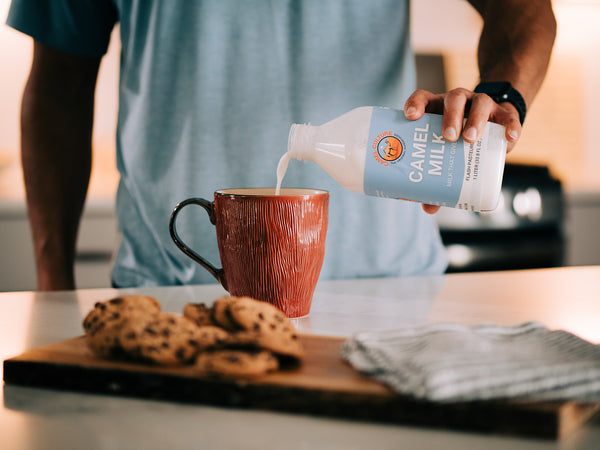Why is Camel Milk so Expensive? (And Worth Every Penny)
The demand for camel milk in the USA is growing fast!
But is it worth the price?
As Americans, we’ve been indoctrinated by the dairy industry to believe cow milk is a healthy and essential part of our diet.
As Dotsie Bausch, olympic medalist & director of Switch4Good, said: “Like a play out of Big Tobacco’s marketing playbook, the dairy industry has used questionable science and clever slogans to manipulate athletes and consumers into buying their unhealthy products.”

But Americans are listening to their bodies instead of Big Dairy! Especially those who are lactose intolerant, consumers simply cannot stomach cow milk anymore.
Hence why plant-based “milks” have exploded over the past 10 years.
But while almond milk, soy milk, and oat milk are gentle on your stomach, these dairy alternatives contain very little nutritional value.
*Spoiler Alert: It’s not actually milk… it’s basically nuts, water, and sugar.

The price of cow milk and almond milk may be cheap, but as the saying goes…
“You get what you pay for!”
The Price of Camel Milk vs. Cow Milk
In terms of price, cow milk costs about $1/liter, while our camel milk retails at $26/liter.
A lower price than our competitors, but it's still shocking for most Americans who grew up on cow milk propaganda!
We need to change our American mindset away from the "sacred cow".
Comparing the price of cow milk and camel milk is like comparing a used gas powered car to a Tesla Model X.
Sure, they’re both cars... but the Tesla is in a class of its own.
Sure, they’re both milk... but the nutrition value of camel milk is far superior to other milks!

Compared to cow milk, camel milk has:
- Low-Lactose
- Low-Fat
- 10x more Iron
- 3x more Vitamin C
- More Calcium
- More Protein
- More Vitamins A & B
- Immune-Boosting Properties
Camel milk is well tolerated by people with food allergies and dairy sensitivity!
Better Compared to a Nutritional Supplement
Instead of comparing the price of camel milk to cow milk, it’s more accurate to compare camel milk to nutritional supplements.
Athletic Greens, a popular supplement, costs $97.00 for a 360g pouch ($0.27/g).

While our all-natural Dry Camel Milk Powder costs $89.00 for a 400g pouch ($0.22/g).

The serving size for both is about the same (1 tbsp), because if you want all the health benefits of camel milk, you only need to drink about 4 oz/day.
As an ancient Somali Proverb says, “A mouthful of camel milk keeps you going for half a day!”
Camel milk has sustained our ancestors for over 5,000 years! I doubt Athletic Greens will be around 5,000 years from now...
Trust in the superfood that has stood the test of time, and helped humans thrive in the harshest environments on earth.
Camel milk is healthy, and it taste great!

The Price of Camel Milk in the USA
We sell our camel milk for $16.50/pint, which is more affordable than our competitors who sell at $20/pint.
Why is the camel milk price so high?
Simply, it’s because of a lack of supply.
Camels don’t give a lot of milk, but what they do give is packed with nutrients!
4 factors that contribute to the lack of camel milk supply:
- Camels are few in numbers in the US
- Camels produce less milk
- Camel are milked ethically
- Camels have long gestation period
1. CAMELS ARE FEW IN NUMBERS IN THE US
There are 94.4 million cows in the US, and many cow dairy operations look more like industrial milking factories than family farms!
According to USDA’s Census of Agriculture report, of these 94.4 million cows 55% reside on farms that milk more than 1,000 cows.
In contrast, there are only around 3,000 camels in the USA, and most live on small private farms of about 2-20 camels per farm.
This means for every camel in the US, there are over 30,000 cows!
The largest camel diary in the US is a family-run farm with a herd size of only 200 camels.
Less camels equals less milk, which results in higher prices.
2. CAMELS PRODUCE LESS MILK COMPARED TO COWS
In the US, milk production for the average cow is about 7.5 gallon/day, while a camel gives only about 1.5 gallon/day (or 6 liters/day).
In 1 year, a cow gives over 10,000 liters of milk, while a camel gives around 2,000 liters of milk.
But even if we did have millions of camels, it’s not easy work to milk a camel!
3. CAMELS ARE MILKED ETHICALLY
We milk camels just as it’s been done for thousands of years. A mother camel raises and feeds her own calf, and graciously shares her extra milk with us.
Unlike the cow dairy industry, camels are never separated from their babies!
In the cow dairy industry, male calves can be killed just to save money, but camel mothers must be kept near their calves to continue producing milk.
Meaning that 2 camels will need to be fed and healthy to produce just 6 liters of camel milk each day.
A camel will only give up her milk with their calf present (and only for about 90 seconds).
Calves drink about 75% of their mother’s daily milk production, and we get what’s left over, about 25%.
Because mothers are not separated from their calves, there’s higher cost with all those extra mouths to feed!
And our camels are also pasture-raised on 100% organic feed. This feed is more costly than concentrated and feed additives.
You’d be surprised the price of camel milk isn’t higher, if you knew how much labor and expenses go into ethically raising happy camels!
4. CAMELS HAVE VERY LONG GESTATION PERIODS
Gestation refers to the period between conception and birth, and the longer an animal’s gestation, the higher the costs for the farmer.
Cows have a gestation about the same as humans - 9 months. But camels have a very long gestation period -about 15 months!
For farmers, this is a long time to wait with no milk, while still paying for the expenses to care for these animals.
Tougher still, a female camel is about 4 years old before they can give birth and start milking.
That's more than double the age when you can start milking a cow (age 2).
That’s 4 years of paying for expenses like feed, pasture, veterinary care, and human hands without getting any milk in return!
And once milking, a camel's period of lactation (milking) only lasts about 10-13 months.

Conclusion:
The high cost of camel milk is due to the lack of supply, and the high demand for this nutrient-dense superfood.
First, camels are few in numbers in the US - only about 3,000 camels compared to 94,400,000 cows.
Second, these 3,000 camels only produce a fraction of the milk a cow produces - about 1.5 gallons/day compared to a cow which produces 7.5 gallons/day.
But because camels are biologically engineering to retain nutrition to survive harsh climates, the milk that camels do give is nutrient-dense liquid gold!
Third, unlike the cow dairy industry, camels are also milked ethically and never separated from their babies! But this results in higher costs, because farmers need to feed 2 mouths instead of 1.
And last, camels have long birthing and breeding cycles -there gestation period can be 15 months! So farmers have long periods of high expenses caring for their camels, while the camels are not producing any milk in return.
As camel milk grows in popularity, farm operations continue to scale, and supply increases, we’re hopeful that prices will come down.
At Camel Culture, we know this precious milk is valuable for so many families.
We value people over profit.
So here’s our guarantee…
We promise you the highest quality camel milk at the most affordable price in the USA.



